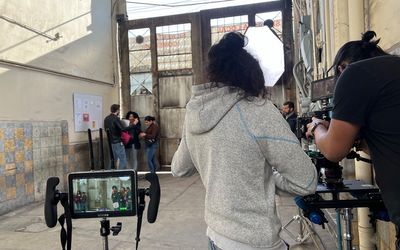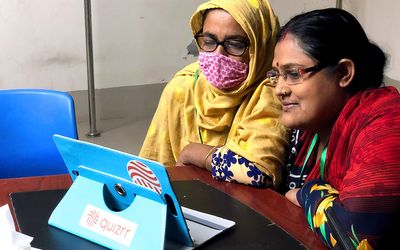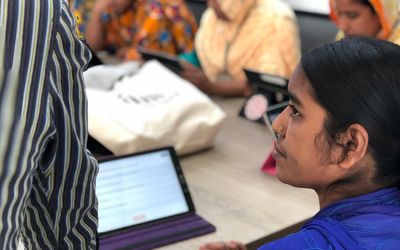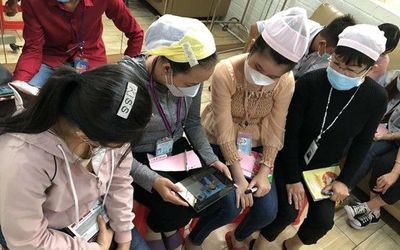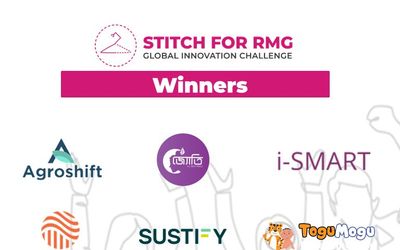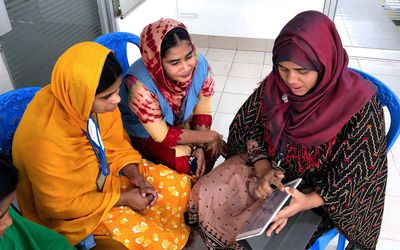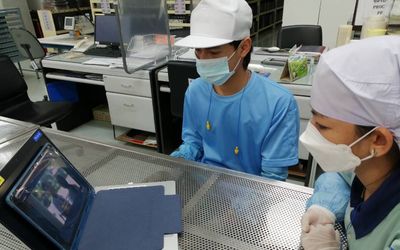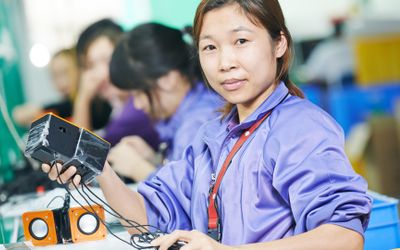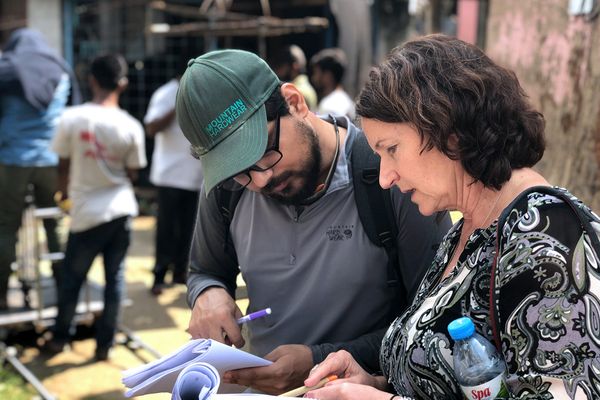
The time to accelerate the “S” in ESG is now
February 22, 2022
She looks up with tears in her eyes and explains in Bengali that her children are now too old, and she missed her chance to get the legal allowed months for mother’s leave. The scene takes place in a small humid room in one of the thousands of factories in the ready-made garment sector in Dhaka, Bangladesh.
- “But maybe now my friends will be able to be with their children”.
Parental leave is just one of many topics that workers in factories need to learn more about. With 16 weeks stipulated by law it is quite generous from an international perspective, but with many factories lacking effective training tools, and many workers unable to read and write, this is sadly often missed.
We met this worker eight years ago when we went to Bangladesh to test the first iterations of our rights and responsibility tool. Both me, and my co-founder Sofie Nordström, strongly felt that if we were able to create a tool that could support workers, factories, and buyers to, at least, secure the basic rights and responsibilities stipulated in global guidelines such as the declaration of human rights, ILO core conventions etc. and translated into brands Code of Conducts, we would be creating something great.
Quizrr should be educational and fun for workers, filled with necessary information from a buyer’s perspective, in a scalable digital platform that enables easy deployment in factories and measurable and transparent results to give factories an opportunity to be proactive and prove that they take responsibility. When we launch a concept that can build both people as well as sustainable businesses of course companies would come running!
It has become clear to us that building a global digital company with a focus on social responsibility, forced labor, wage management and workplace dialogue takes longer time than we thought at the onset. Collaborating with global organizations and working with brands that wants to spearhead positive change is filling us with new energy and helps us to push on.
During the twenty plus years I have been working in the consumer goods industry at the buying side, in production countries with supply chains or with sustainability, I have identified three areas that has prevented quicker growth for social sustainability. There are of course many more that would be worthy of mentioning and they are different from company to company. But these are, from my perspective, what slows our progress the most.
Firstly, there has been, and still is, a massive focus on the environment. With our world under threat from rising temperatures it is hard to argue that this is wrong. During the last years this has started to change. Some of the biggest companies in the world, as well as brave smaller ones, have started to talk about the and. To create a world where we, as global buyers, can be proud of our footprint in production countries not only from an environmental perspective, we need to be able to create tangible and measurable results of improvements for both the environment and for people. Regulation and legislation speed up this movement and an increased focus on ESG from financial stakeholders is a welcomed boost.
Secondly there are too many companies where sustainability managers still feel disconnected from the business, lacking the necessary budgets to create change and without mandate to make the hard decisions affecting the business teams. I feel hopeful when I see brands moving sustainability into the core of the business and often placing it as one of the key KPI’s for the business owners. Social sustainability is a complex topic and placed next to other issues more in line with the daily business running many companies need solutions like ours both to set relevant goals and to be able to follow them up in a structured and measurable way.
Thirdly we as consumers need to become our own sustainability heroes. During the pandemic a need for well-functioning online sales channels became apparent. Many global brands that have been scrutinized for decades by governments, organizations, and media, lost a lot of ground to online retailers. When we make it clear that we demand the same responsibility to buy from online sources, the change many of us is waiting for will happen.
The beautiful thing about social sustainability is that it is right not only from a people perspective. We have factories as clients that achieve amazing results in their profit linked to our work. When you show that you care about your employees and train them on life critical topics and open an expanded dialogue between management and the people on the factory floor you also start an amazing journey towards better engagement. This enables lower turnover of staff and, because your workforce stays longer, better productivity and better quality.
To get to where we want to go, we need to trust in the process. We need challenging goals but more importantly we need to do our jobs each day and then results will come. In the meantime, with so many positive signs pointing in the right direction, I have hope that the wait for the world to change will soon be over.
